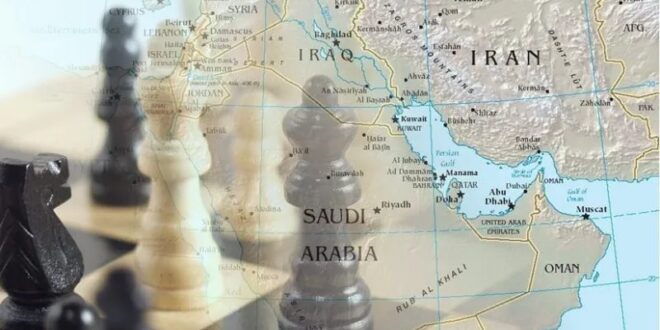The withdrawal of the US from the Middle East and the increasing involvement of China (and Russia to a lesser degree) have altered the geopolitical landscape of the region and intensified the competition among the major powers.
The EU and European countries have adopted a pragmatic approach that concentrates on their interests and disregards any values or preconditions. They have evidently opted to support the stability of the regional regimes over any human rights and normative objectives, and they are even prepared to relax some of their strict standards on arms exports in order to align themselves with the moderate tendencies of the Middle Eastern countries. This indicates that they have forsaken their previous goal of balancing values and interests.
Until now, due to the US’s overwhelming power and military presence in the Middle East, along with China’s passive involvement and the Europeans’ reliance on the region’s energy supply, there was no competition for influence in the region. Under these circumstances, the European Union and its members professed to adhere to some norms in the Middle East, but these norms were merely superficial. Europe lacked the necessary determination or sufficient power to compel the regional countries to observe them.
The European Union has undermined its normative legitimacy in the Middle East due to its unequal human rights standards and its participation in the region’s violence, which have resulted in numerous casualties. EU has shifted to a more realistic foreign policy orientation in light of the altered geopolitical landscape and the diminished US involvement in the region. This union is now more cognizant of its own capabilities and constraints, and more rational about its objectives and methods. EU members are prepared to concede on their values and employ various tactics depending on the costs and benefits of each scenario. Europeans assess the consequences of their actions based on their normative implications and sometimes opt to act in a less principled manner to avoid adverse outcomes.
The Middle East constitutes a significant source of oil and gas for Europe. Furthermore, the region has witnessed substantial investments from the Europeans, particularly in the renewable energy sector. The European Union and some European countries have also endeavored to participate in the reconstruction process of the region’s war-affected areas and to augment their soft power by establishing universities and language learning centers. These actions demonstrate the importance of developing and consolidating influence in this region for Europe and in competition with powers such as China and Russia.
In pursuit of this objective, Europeans do not adhere to any normative and legal constraints and are easily inclined to disregard the preconditions of human rights and approved export control regimes. Additionally, the war between Russia and Ukraine has revealed the political importance of the countries of the so-called “Global South” for Europe during the period of order transition. The Europeans are attempting to increase their mutual dependence on the countries of the Middle East region as members of this new global bloc and to obtain the geopolitical alignment of these countries in the present and future.
From the European viewpoint, the countries of the global South have increased in importance in the transition of the world order and the geopolitical contest between the US and China. Europe seeks to establish cooperation with these open middle powers and secure their assistance in the great power competition. For this purpose, Europe is prepared to disregard its multilateralist and normative reputation and its own regulations such as: forbidding dual-use technology exports and demanding human rights observance in commercial agreements. Europe was not very serious about human rights and norms before, but now it plainly states that it will collaborate with any country or regime that benefits its interests. This is the reason why Europe and even Britain have not endorsed Biden’s proposal of democracies versus autocracies because they believe that such a categorization and pressure will drive those countries nearer to China and Russia and farther from the West.
The Europeans are in a war of influence with China and Russia in the Middle East, which is a significant part of the global south. They are pursuing a pragmatic and non-normative approach and even forgoing the values that they professed to champion in the world. They seek to prevent these countries from aligning with China and Russia. The European Union also faces internal divisions over the application of its secondary sanctions mechanism. This is because these sanctions will entail a diplomatic cost for the European Union and impair its relations with the countries of the global south, particularly those in the Middle East.
 Eurasia Press & News
Eurasia Press & News




